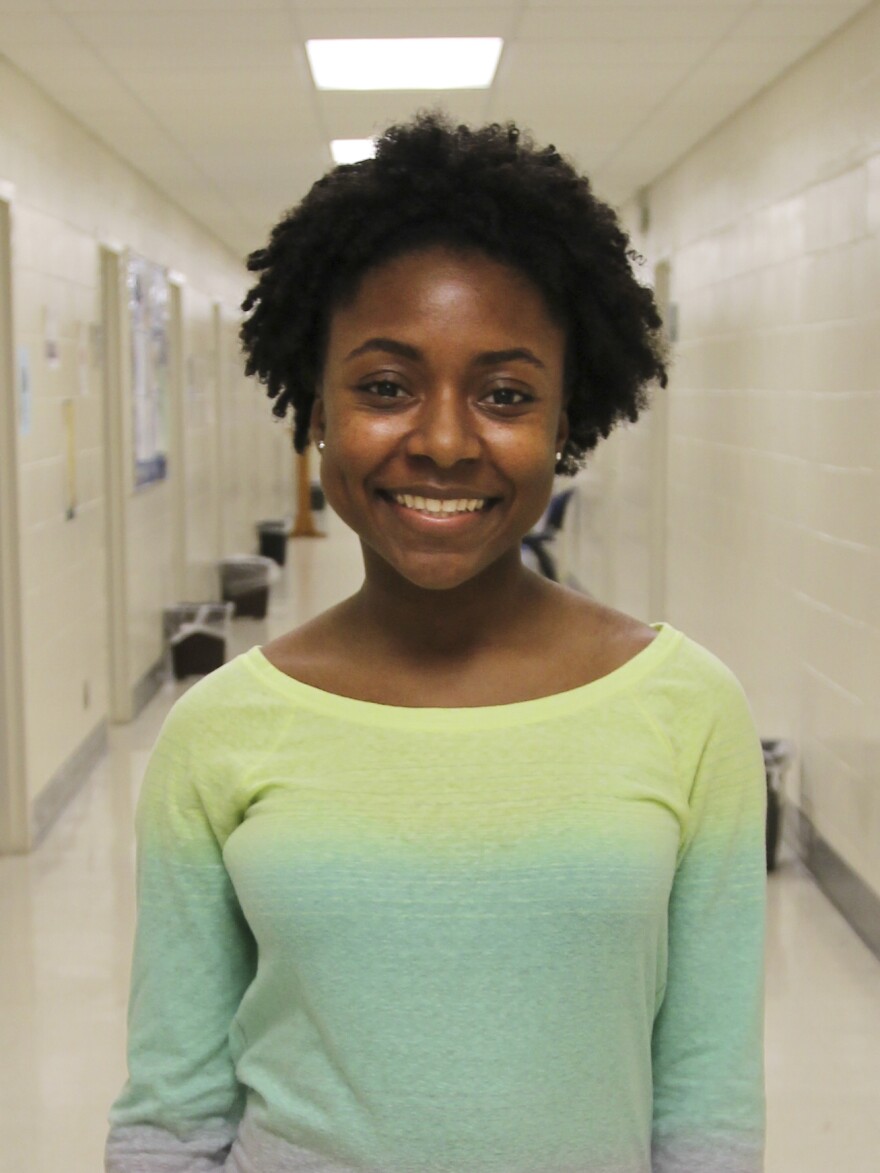Before Thurgood Marshall became the first black justice on the U.S. Supreme Court ...
Before Toni Morrison became a Pulitzer Prize-winning novelist and Nobel laureate ...
Before Kamala Harris was elected to the United States Senate ...
They were all students at Howard University. They roamed The Yard in between classes, they studied in Founders Library. Whether they knew it or not, these students would become part of Howard's history as a jewel of African-American education and culture.
The Washington, D.C., campus is ranked at or near the top of the nation's historically black colleges and universities (HBCUs).
This week, Howard celebrated its 150th anniversary. The celebration came in a tumultuous week in which HBCU presidents came to Washington to meet with President Trump.
NPR Ed visited the campus to talk to students about Howard's history, and what going to school there means to them.

Megan Preston: Sophomore, biology major
For Megan Preston, actress and Howard alumna Taraji P. Henson has been one of her biggest inspirations. Henson worked two jobs and became a mother while finishing her degree at Howard. She went on to Hollywood, most recently appearing in the Oscar-nominated film, Hidden Figures.
Preston says she chose to attend Howard because she wanted to be in an environment where black students were achieving greatness, like Henson did.
"I feel like it's different than being at a PWI [predominantly white institution] because white people are known for doing great things," Preston says. "So to be around black people doing that, it's inspiring for me. It makes me want to do better."

Angel Mitchell: Junior, computer science major
Angel Mitchell applied to other HBCUs, like and . But Howard was at "the top."
Mitchell says there are "so many people who have been through Howard and made it what it is. They hold us to another standard that might not happen at other HBCUs or other schools, period."
So when Mitchell got her scholarship, her decision was easy. One of her favorite professors at Howard is Greg Carr. She says his Intro to Afro-American Studies class was an opportunity to learn cultural content that she wouldn't have learned otherwise.
Celebrating Howard's birthday "feels like I'm a part of history," she says.
"I definitely feel like I'm part of paving the way for other people because other people have paved this way for me too," Mitchell explains. "I just want them to have the same experience or better."

Tyler Ellis: Junior, sports medicine major
Tyler Ellis came to Howard to play soccer. The university's culture and diversity is more than just "a lot of black kids," he says.
Ellis is planning to take a spring break trip to Ghana this semester, which he hopes will teach him more about civic engagement.
"I just think it's excellent, man," Ellis says about the anniversary. "It just shows that Howard's been doing a lot of great work despite what people may think."
Ellis is also a member of Phi Beta Sigma, the same fraternity that Alain LeRoy Locke belonged to. Locke, who taught at Howard, was the first African-American Rhodes scholar.

Cameron Clarke: Senior, biology and community health majors
Speaking of , meet Cameron Clarke — one of four Howard students to receive the scholarship to attend the University of Oxford.
The original plan was to "go anywhere else but here." Clarke says his brother graduated from Howard last year and he wanted to avoid following in his brother's footsteps. Now, he says, "it's probably the best decision I could have made."
To Clarke, the history of the campus' activism around social justice is part of what makes Howard special.
Recently, there have been protests critical of the university's president for a private meeting he had with Education Secretary Betsy DeVos. On Tuesday, graffiti appeared on campus, including a walkway on The Yard that read: "WELCOME TO THE TRUMP PLANTATION. OVERSEER: WAYNE A. I. FREDERICK."
Clarke says he expects that kind of activism. "I'm actually excited by the fact that students are engaged and passionate and willing to go straight up to the president and call him out when he's doing things that we object to from a moral or ethical standpoint," he says. "I think that bodes well for us lasting another 150 years."
Copyright 2020 NPR. To see more, visit https://www.npr.org. 9(MDAwMTM1NDgzMDEyMzg2MDcwMzJjODJiYQ004))








